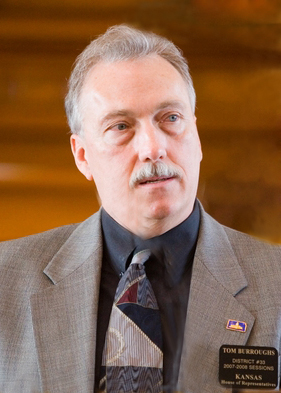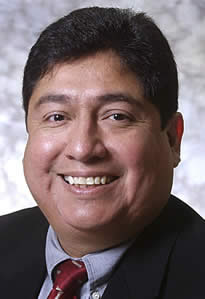The pros and cons of eliminating the mandatory landlord training ordinance were pondered Monday night by a Unified Government Committee, with Strawberry Hill residents leading the challenge against the repeal and a landlord standing on the other side of the issue.
After a public comment session that included former District Attorney Nick Tomasic and former Strawberry Hill Neighborhood Association president Carole Diehl, as well as a landlord, Ed Jaskinia Jr., the UG Neighborhood and Community Development Standing Committee decided to study the issue more in depth before making a decision.
The ordinance to train all landlords was approved in February of this year after UG commissioners were looking for a new way to reach landlords whose property had fallen into disrepair. Monday night, the office that oversees code enforcement asked for a noncompulsory, free online video seminar to be used for landlord training, and the repeal of the February ordinance.
Commissioner Brian McKiernan said at the outset of the meeting he began to question whether everyone should have to take the landlord training course. There were discussions about its timing, if people could test out of it, or if existing landlords could have a “grandfather clause,” he said.
Police statistics showed that 35 percent of properties were rental properties, and that 23 percent of police calls in 2012 and 2013 were at rental properties, he said. “I began to wonder, do we need a mandatory program?“ he asked.
He suggested stricter, more aggressive enforcement of the existing codes might be better than landlord training.
The Strawberry Hill Neighborhood Association did not want to repeal the ordinance.
“The problem is not homeowners. It’s rental property and has been for years,” said Nick Tomasic, former Wyandotte County district attorney who is the vice president of the association.
“It’s not just the number of crimes that occur, or code violations,” he said. “If somebody owns property (and lives there), they’re going to keep it up. If they don’t own property, when it’s rental, you’re going to have problems there.”
Tomasic described some landlords who were using a lease-to-purchase method to avoid a city landlord registration law. It was a way to get around the rental licensing laws.
He was in favor of increasing code enforcement, actively pursuing landlords who let their property decline, and continuing the mandatory landlord training.
He was backed by Tim Ryan, president of the Strawberry Hill Association, and by Carole Diehl, past president.
Having training would get landlords on board, trained and educated, Ryan said. It’s important to hold them accountable, he said.
Diehl estimated there were about 25 houses in the Strawberry Hill neighborhood that were owned by landlords who allowed renters to live there who were fighting in the middle of the street, urinating in public or leaving trash in public.
“Guess who gets to clean it up?” she asked, adding it was the neighborhood association.
She said training could be “grandfathered in” for good landlords, but new landlords needed training in UG ordinances. At least four others spoke against repealing the ordinance.
Ed Jaskinia Jr., a landlord, was for the repeal.
“What we’re talking about is penalizing 94 percent for the actions of 6 percent,” he said.
He said through the years, a special night court was created to handle the problem, and did not solve it, then a rental licensing ordinance was passed that did not solve it. Many solutions have been tried, but none has worked, according to Jaskinia.
He said the UG needs to address the issues with the bad landlords, and not penalize the good people. The only reason there are landlords in the community is that no one else will buy that property. Either the property will be vacant or it will have a landlord, and he’d rather have people bringing tax money into the community, he said.
He added that landlords can’t pick and choose their renters because there are fair housing laws.
“We all need to start working together than against each other,” he said, “and try to make things right. The mandatory part of it is not working together.”
He suggested mandatory landlord training only for repeat code violators.
There needs to be innovative ways to solve it, not Band-Aid solutions, he said.
UG staff said there were an estimated 18,000 rental units in the city, with 20 to 30 landlord violations a month.
UG commissioners on the committee agreed that more study was needed, and said they needed a wider group to look at the issues. Commissioner McKiernan is leading the effort to put together the group.
Contacted after the meeting, another landlord, State Sen. David Haley, D-4th Dist., said that he viewed the landlord training question as sort of an equal protection issue. He believes the training is widely unpopular.
Most people feel the training should only be warranted if there’s a need, he said. When it’s just a few bad apples who are causing problems, the training should be supplemental. All of those who have rental properties shouldn’t have to be encumbered, he said.
On the other side of the issue, there are other areas, such as driving a commercial vehicle, where special licenses are required, he said.
The second phase now appears to be to “grandfather in” those who have shown themselves able to manage property and don’t need additional coaching. “It’s an interesting debate,” he said.
Haley said Rep. Stan Frownfelter has worked on a bill for several years to allow the Unified Government to move some abandoned or deteriorating properties more quickly to the Land Bank so they can be sold to other persons. The bill has not yet advanced.
“I believe that sometimes we have to hold due process to a higher standard where it benefits people over government,” Sen. Haley said.
If a balance can be struck to show the properties are truly in need of care, or there is a compelling neighborhood interest, not a compelling city interest, he would be for it, he said.
“I hate to create hurdles for everyday people, I hate to stand in the way of everyday people,” Sen. Haley said.


